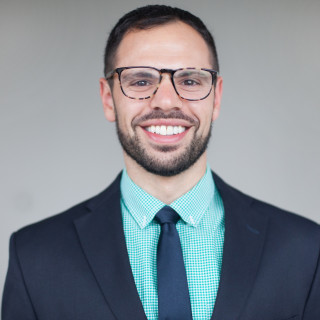
In an era of increased attention to physician, resident, and medical student mental health and well-being, it is time to change the residency application process. Not necessarily the match algorithm, but the application process leading up to the Match. It is an archaic system that is financially and emotionally punitive. And it is a system that has not kept pace with the demographics of medical students.
How We Got Here
As with many ideas in healthcare, the Match was born of good intentions. In the turn of the 20th century as medical students started to pursue internships and residencies before practicing, hospitals competed for candidates by offering positions earlier and earlier. By the 1940s, it was not uncommon to receive a job offer after completing the first two years of medical school. In response, medical schools delayed the dates that recommendations and transcripts could be released. This effectively pushed job offers back to the fourth year of medical school, but created rush-hour-in-LA-with-construction-on-all-lanes-except-one level of congestion, as the time-frame in which hospitals could make offers went from years to just a few weeks. Hospitals responded by shortening the time frame in which medical students could respond, and by 1950, medical students had to respond “yes” or “no” to what was termed “exploding” offers. The solution to this problem was the Match, which roughly in its current form, has been the way medical students find residencies and hospitals find residents since 1953.
Cause and Effect
The algorithm itself may put everyone on an equal playing field in its attempt to maximize rank preferences, but the process leading up to the rank list is conducted at the literal expense of already debt-burdened medical students. According to the AAMC’s FIRST team’s analysis of annual survey data, the interview process ranges in cost from $1000 to $7500, and “Dr. Median” spends $3600 on the interview process. Given the mountain of debt medical students are already under, an additional $3600 may seem like nothing, but it still requires med students to dig themselves into a deeper hole, adding emotional and financial stress.
The process comes with an emotional and mental cost as well. In an effort to ensure that enough students to fill each interview slot, residency programs overbook their interviews making an interview selection no guarantee of an actual interview. Students must reply within a few hours (if not minutes) to secure a seat because they are filled on a first-come-first-serve basis. This has led to various levels of ingenuity by medical students: some of have parents or significant others keep tabs on ERAS emails, some ensure a text message be sent with every email from ERAS; other simply spend more time than normal staring at and refreshing their phones, which, while seemingly banal, has been linked to depression, anxiety, and low self-esteem. In addition to the financial and emotional stress, the interview season basically puts a stop to medical education where medical students fill their schedules with less than rigorous coursework. What is an additional day of being on the wards when the alternative is potentially missing a residency interview?
The effect of any individual going on an additional interview or two is inconsequential. But when multiplied tens, hundreds, or thousands of times, it potentially has the effect of blocking candidates from securing residency interviews. The fault doesn’t lie with programs or students, but rather with the design of the application system and the behaviors it incentivizes. If attending 12 interviews would nearly guarantee an applicant a position, attending 14 or 15 will bring the applicants even closer to a guaranteed match.
The current application system rewards over-applying. Because applications are only limited by the number of programs that exist in a specialty, applicants do not need to be conservative about the number of applications they submit. Imagine the scenario where a slightly “overqualified” applicant applies to a few extra programs. He or she is likely to get a few additional interviews. Now a perfectly qualified candidate is in a position where he or she is receiving fewer interview invitations due to crowding out and must submit even more applications, perpetuating the cycle. The result is qualified candidates either spending more money or failing to match.
A Better Model
Ironically, though the match system was designed by economists and won a Nobel prize in economics, it is not, in-fact, used by economists. Since developing this residency application process, the field of economics has found and implemented a solution that is both less financially and emotionally draining. Like residency applicants, job seekers in economics have a centralized system that displays all of the available positions, and once an applicant submits his or her application, applicants wait to be contacted about an interview. That is where the similarities end. If you are a medical student, you would now anxiously await every notification from your phone, excusing yourself from clinics, courses, and conversations, in the hopes that you are not too late to secure a seat. If you are an economics graduate, you also anxiously await to hear back from potential employers, but there is no rush and because interview slots are not overbooked, and there is no question of whether the interview will fit into your schedule because all interviews are conducted at the American Economics Association annual meeting. All interviews are done in one place, over a few days.
Instead of spending one to seven thousand dollars on travel, hours booking and rebooking flights, an applicant would simply need to attend his or her chosen specialty’s annual meeting. The cost would be a round-trip flight and a few nights at a hotel.
The residency application system is showing its age. Designed in the 1950s, the program assumes residency applicants to have padded wallets who can walk away from their family, friends, job, schooling and life for all their interviews and fly across the country multiple times. As we strive to alter the profile of the average medical student to include more financial, gender, and racial diversity, we must also reform the application process to reflect this progress.







